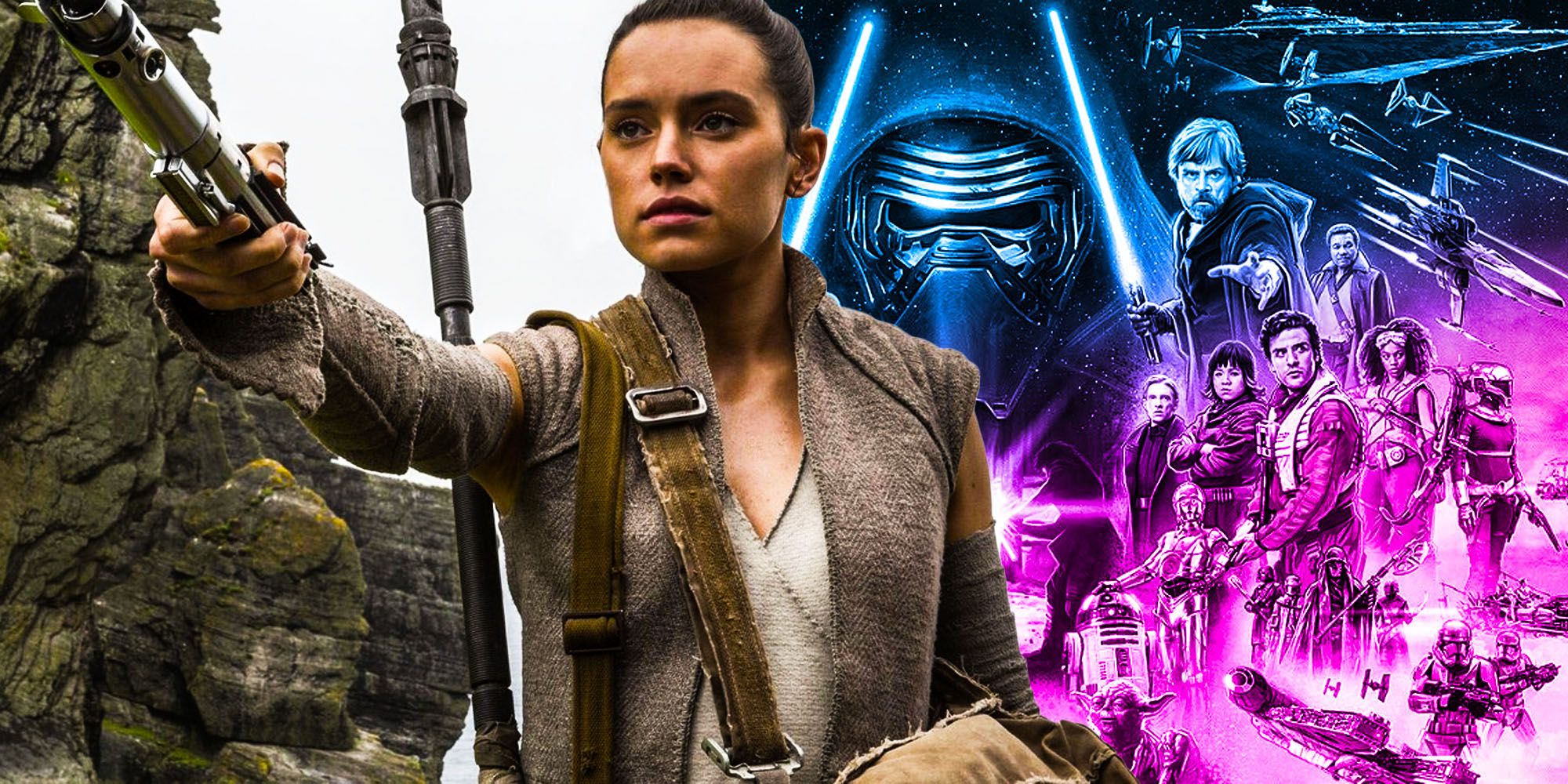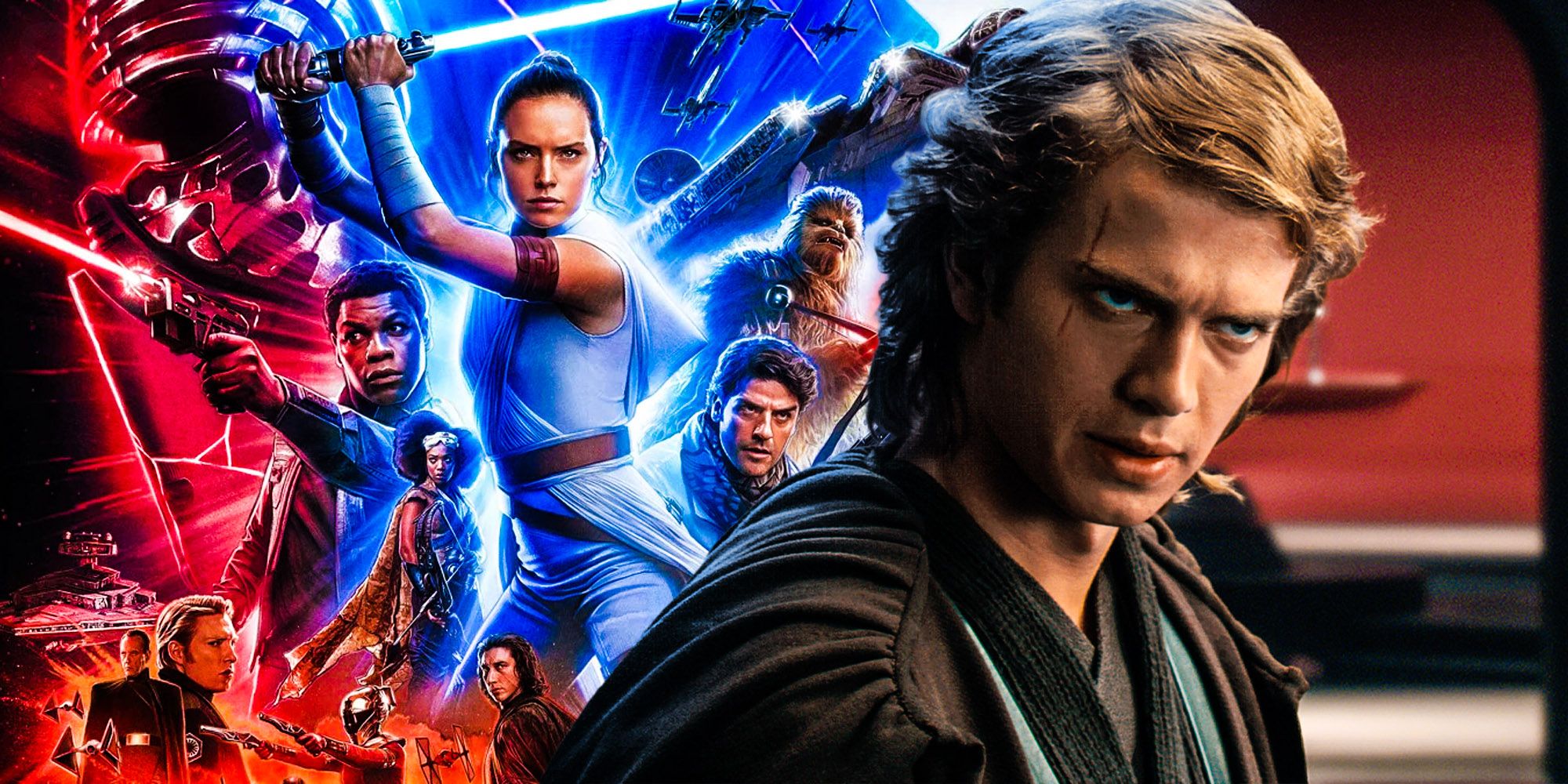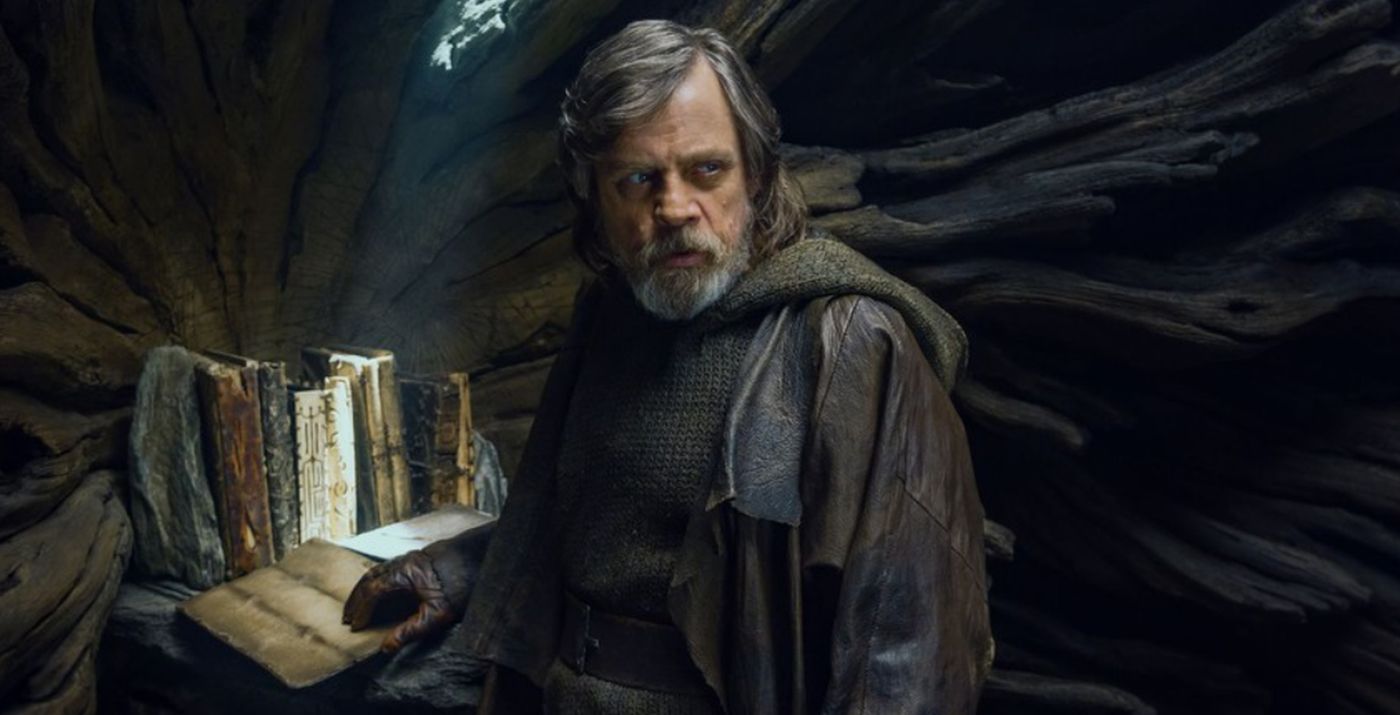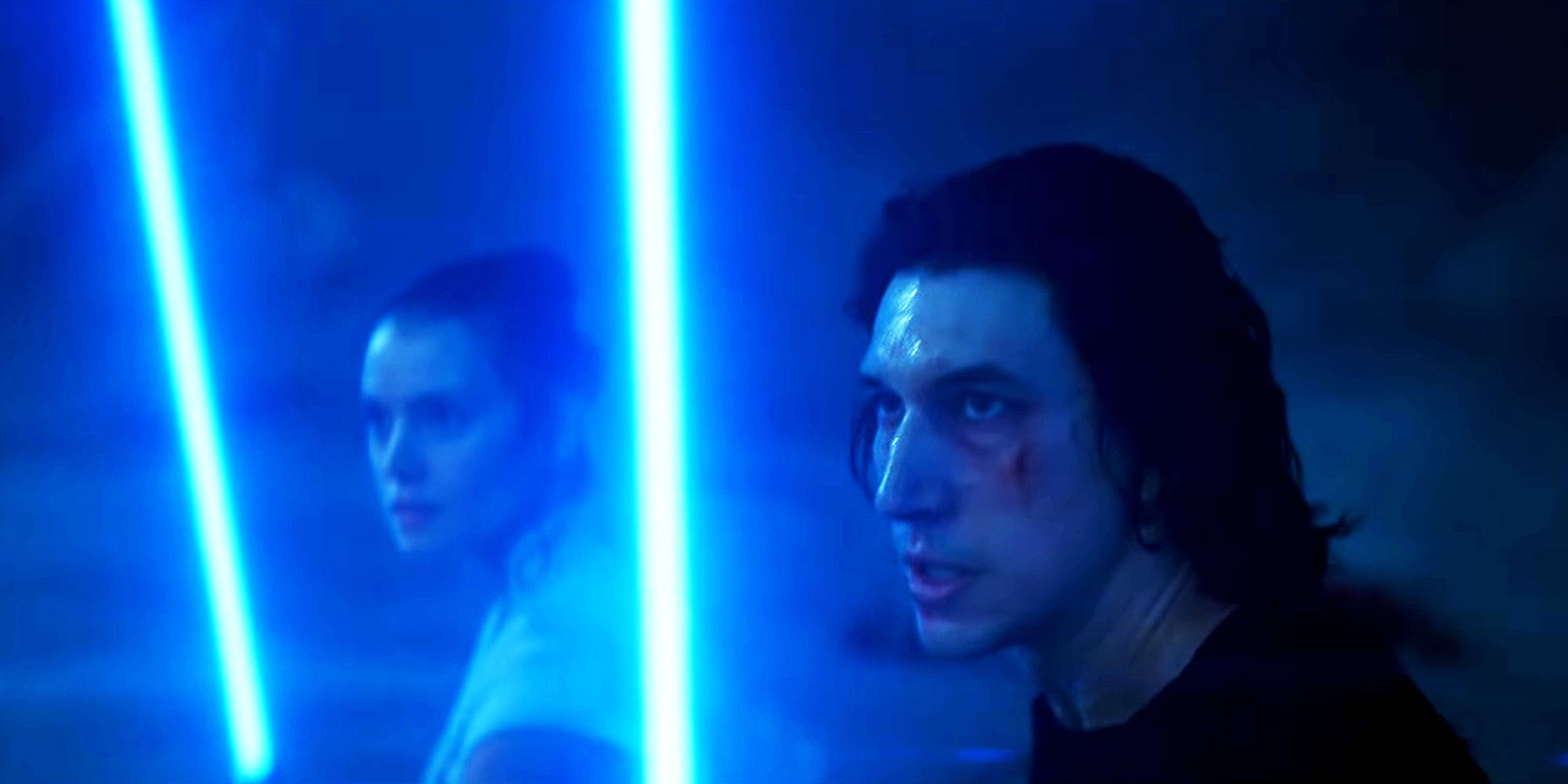Although commercially successful, the Star Wars sequel trilogy films inconsistently pleased fans and critics, in part because they focused too much on fixing aspects of the franchise that were never problems. This focus led to a lack of creativity in several areas, divisive approaches to the franchise’s most iconic characters and lore, and an apologetic tone towards previous Star Wars movies (including other sequel trilogy films). Now that the sequel trilogy has concluded, the films are unfortunately seen as polarizing, with many viewers and even cast members feeling that they’re a disservice to their predecessors, while others enjoyed their new direction, feeling that they boldly reinvented the franchise.
Lucasfilm, and subsequently the Star Wars franchise, were purchased by Disney in October of 2012 and a sequel trilogy was announced simultaneously. While Star Wars has always been popular, and many fans had warmed up to the prequels in the years since their release, the general audience still wasn't immediately sold on the idea of more Star Wars movies in 2012.
For all their problems, the sequel trilogy films did a lot of good for the franchise. The trilogy has a spectacular cast, with even the most fervent detractors finding themselves hard-pressed to criticize the performances of the trilogy’s new and returning talent. The sequel trilogy also makes the Star Wars franchise far more diverse, featuring a plethora of women and POC in lead roles and as creators, helping the franchise become even more inclusive. Unfortunately, the trilogy’s better aspects are often overshadowed by its mistakes, particularly its attempts at fixing things that weren’t problems in the first place.
The Sequels Were Too Much of a Prequel Apology
The Star Wars prequel trilogy was reviewed quite harshly by critics and viewers alike at first, but over time has become far more appreciated. Some of the biggest complaints involved the chemistry between Hayden Christenson’s Anakin Skywalker and Natalie Portman’s Padme Amidala, too strong of a focus on politics (and subsequently slow pacing), and an overabundance of computer-generated imagery instead of practical effects.
Star Wars: The Force Awakens puts an extraordinary effort into being essentially the opposite of the prequels. The film’s marketing heavily emphasized practical effects such as props and puppetry, rather than CGI. The film itself does away with any political dialogue or storylines, only briefly explaining who the First Order, New Republic, and Resistance are in the opening crawl, attempting to lean far more into the feeling of the original trilogy. Unfortunately, this led to one of the film’s most common criticisms: The basic plot of The Force Awakens is so similar to Star Wars, that the film often feels like a remake. While Legends and the prequels told their own stories and had their own identities, The Force Awakens often lacked originality.
Star Wars: The Last Jedi repeats its predecessor’s mistakes and make's Luke's entire arc about rejecting the failure of the Jedi of the prequels, when that's the very struggle he already overcame in Return of the Jedi when he threw down his lightsaber and refused to kill Darth Vader. The Last Jedi also seems to be too occupied with subverting the idea of the "chosen one," which is a core part of the Campbellian hero's journey that inspired Lucas in both the original trilogy and the prequels. Making Rey related to no one and inserting the "broom boy" tease at the end both feel like attempts to "fix" the prequel introduction of midi-chlorians and Chosen One prophecy, which have been criticized for undermining the idea that anyone can become a Jedi or be a hero, but Star Wars is already full of Jedi and other heroes that fit that description, making The Last Jedi's approach too heavy-handed.
The Last Jedi Was Too Concerned With Subverting Expectations
Star Wars: The Last Jedi put an enormous effort into subverting audience expectations. The Force Awakens, for better or worse, left audiences with numerous lingering questions which generated much anticipation for The Last Jedi. Viewers were excited to find out who Rey’s parents were, see the return of Luke Skywalker, and learn more about Palpatine’s successor, Snoke. The Last Jedi sought to resolve these elements as surprisingly as possible, but the results left fans famously divided. The film tried so hard to throw curveballs at its audience, that some of its subversive twists felt like twists for the sake of twists without mattering as much to the story.
Most viewers assumed that Rey was related to an established character, so The Last Jedi made her related to nobody. Some applaud this choice for its message that anybody can be a Jedi, but the original and prequel trilogies already established this quite clearly. Most Jedi are ordinary beings with no special bloodlines, and when actual royalty, such as Count Dooku, became Jedi, they received no special treatment. While Palpatine was given almost no backstory in Return of the Jedi, many hoped that the successor to the saga’s greatest villain would at least have brief exposition. Instead, Snoke is killed by his apprentice via a sneak attack.
Many viewers expected Luke to join the Resistance, fight the First Order, and, most importantly, naturally progress since he was last seen in Return of the Jedi. The Last Jedi, of course, subverted these expectations as well. In the original trilogy and Legends, Luke Skywalker was an earnest and sincere (albeit flawed) hero whose greatest victories were won with sentiment rather than his lightsaber and Force powers. The Last Jedi introduced a Luke who had become cynical and disillusioned, yet when audiences expected him to join the battle, he instead sacrificed himself lightyears away via a Force projection.
It's less a matter of whether or not any of these story choices are good or bad, independently any one of them could be a great story element, but when every story choice is a subversion of audiences expectations, it made some fans feel like the subversions were judgments of their expectations. By subverting the core tropes that many people think make Star Wars what it is, many viewers felt like it was criticizing the very nature of the Star Wars franchise. That's an appealing concept to many, and certainly, it wouldn't be the first time a story set out to be critical of its own existence in such a way, but this approach is also responsible for the movie's polarized reception, and thus fundamentally altered Disney's approach to the story for the sequel trilogy's final installment.
The Rise of Skywalker Tried Too Hard To Please Everyone
Star Wars: The Rise of Skywalker was put in an unenviable position. After The Last Jedi divided viewers and left many still wanting answers to the questions created by The Force Awakens, Star Wars: The Rise of Skywalker sought to please everyone. The film catered to original and prequel trilogy fans by bringing back Palpatine, having him repeat a famous line from the prequels to partially explain his resurrection. Legends fans may have noticed an abundance of reimagined elements from the Dark Empire comics in The Rise of Skywalker, and the film also attempts to satisfy both fans and critics of The Last Jedi. In short, it felt like an apology for Star Wars: The Last Jedi.
For viewers left unsatisfied by Snoke’s lack of exposition, The Rise of Skywalker takes a brief moment to reveal that Snoke is a proxy of Palpatine’s rather than his successor. The film also retcons Rey’s lineage to make her Palpatine’s granddaughter, but later has her adopt the surname Skywalker. During Luke’s scenes as a Force ghost on Ahch-To, his dialogue seems directed towards his controversial behavior in The Last Jedi, criticizing his disrespect for Anakin’s lightsaber and refusal to fight against tyranny.
The Rise of Skywalker's approach to pleasing fans felt very much like an attempt to fix controversial elements in The Last Jedi instead of simply embracing them and telling a new story. The film spent a hefty amount of its runtime cleaning up after The Last Jedi, and its efforts to satisfy every viewer left it feeling empty and generic to many.
The Rise of Skywalker attempted to fix the franchise subversion from Star Wars: The Last Jedi by including as much fanservice as possible, but that’s not what the sequel trilogy needed. It needed an identity of its own and a more balanced level of respect for the previous films, especially for the saga's final installment. The original six Star Wars films were not perfect, but the sequels would have been better off carving their own, potentially imperfect path instead of trying to fix complaints from previous films.




